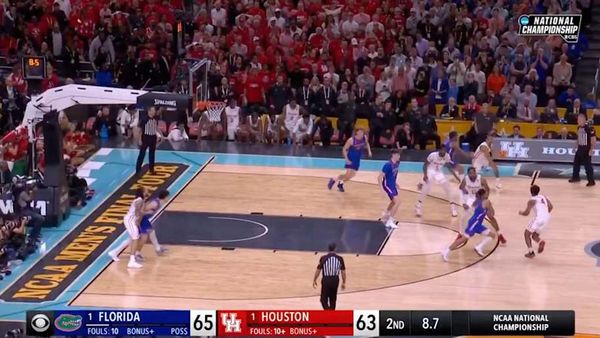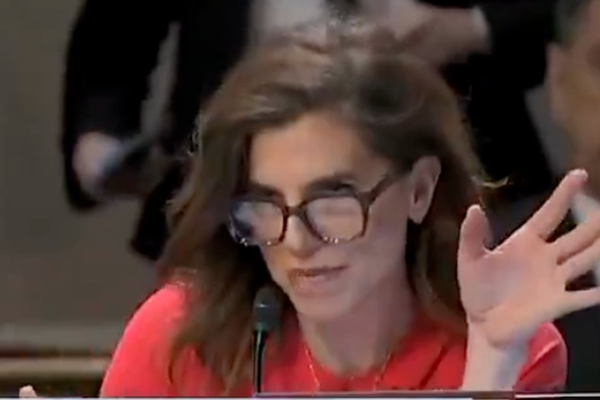
Oregon has for years struggled with a drug crisis, reporting one of the highest rates of substance use disorders in the US and ranking last in the nation for access to treatment.
The problem is systemic, rooted in decades of failure to invest in the level of behavioral health services needed for people with mental illnesses and addiction. The Pacific north-west state’s significant affordable housing shortage has compounded the challenges, as people languish on the streets without care. Many drug users spiral downward until they overdose, wind up in jail or prison or are forced into Oregon’s overcrowded psychiatric system.
It is a cycle that has come at great cost to families and taxpayers, and in 2020, voters opted for a radical change. Measure 110, a ballot initiative passed by 59% of voters, decriminalized possession of small amounts of drugs, with the idea that users would not be jailed for the most minor offenses and instead encouraged into treatment. With an initial $302m investment in recovery services, the measure aimed to treat addiction as a disease, not a crime.
The state’s groundbreaking experiment was, however, quickly deemed a failure, blamed for a variety of complex social problems as decriminalization was timed with a surge in fentanyl overdoses, growing homelessness and pandemic-era gaps in social services.
Last year, lawmakers recriminalized drug possession, a swift reversal just as Measure 110-funded programs were starting to demonstrate their impact.
Some of the funding for the new treatment and recovery services has, for now, remained intact, with innovative programs chipping away at the crisis, though with reduced resources. The Guardian visited organizations across the state that are successfully turning people’s lives around, meeting with people who have, against steep odds, found recovery.
While serving divergent populations and using different strategies, the programs were united in their reliance on peer support and having staffers in recovery themselves. They attribute their success to their emphasis on building relationships and trust, treating people with dignity and providing easy-to-access services outside of the criminal legal system.
Here are four of their stories.
Rescued by Portland’s innovative street outreach: ‘We felt like we didn’t exist’
On 12 November 2024, Cameron Washam, 45, was lying on the street by Portland’s Union Station, on the brink of death.
He and his wife, Christina Bell, 47, had long struggled with homelessness and addiction and lived on the streets during the pandemic, moving spots on a nearly daily basis in an effort to prevent their belongings from getting stolen. The two had met in a group home as teenagers, reconnecting and marrying as adults.
On the streets, “we felt lonely and judged a lot, or like we don’t exist at all,” said Washam. Bell recalled feeling so invisible that at one point when a woman passing by said hello, “I stopped her and said, ‘You can see me?’”
In recent years, their addictions, like so many in Oregon and across the west coast, progressed to fentanyl use, which became all-consuming. “I didn’t care where we slept, where we ate, I didn’t care about anything. All I cared about was finding drugs so we wouldn’t get sick,” said Bell, describing the physical toll of fentanyl withdrawal. “You want to die. There’s no way out.” Washam said getting his next fix was “like needing to feed your children – the most important thing”.
On the day in November that everything changed, Washam had developed an abscess in his gum, but had been released from the hospital in the middle of the night without help. “I was a fentanyl user and they didn’t want to figure out what was wrong,” he said. The couple had lost their belongings in the process, Washam’s infection had caused sepsis, and they were lying in a puddle, soaking wet and increasingly ill from withdrawal. “We were at the bottom and I was dying,” he said.
At that moment, workers from a Portland street outreach initiative coordinated by the Mental Health and Addiction Association of Oregon (MHAAO), a non-profit dedicated to peer recovery services, approached and offered help, saying they could immediately take them to a detox program. The couple had been talking for months about wanting to get clean, and this was their chance. They entered detox, Washam got emergency surgery for his infection, and after eight days, they were placed in an outpatient program, then a sober recovery home.
They had tried detox before, but this time was different. They were ready – and crucially, they were able to transition directly into housing, avoiding returning to the same environment that had fueled their addiction.
The outreach effort, called the Provider-Police Joint Connection Program, started in December 2023 as a pilot partnership between Portland police, MHAAO and Health Justice Recovery Alliance, an advocacy organization for Measure 110 providers. It has since grown into a collaboration of dozens of providers in the region. Outreach teams gather downtown and share information about the resources available on a given day and then offer people on the street instant help, including detox beds, recovery housing, addiction medication and peer support.
The success, supporters said, stems from the close coordination between groups that provide an array of services, so people can get the full range of help they need without having to navigate complex bureaucracy or long waits. Police are involved by suggesting outreach locations or alerting providers when they encounter someone in need, but the work is driven by the organizations and their outreach workers, many of whom are in recovery, formerly incarcerated or unhoused. Since its launch, the program has connected 1,005 people to services, including 651 who received access to programs on the same day outreach teams met them and 159 who got into detox and treatment.
“I like to say we’re ‘below-low barrier’,” said John Karp-Evans, MHAAO deputy director. “We’ll take anyone in. You can say ‘FU’ to our offers of services 21 days in a row, and then if on the 22nd day, you say you want treatment, we’ll take you.”
“Just 120 days ago, we were laying on the ground over there dying. Now we have a place to live. We have a future,” said Bell, seated inside an MHAAO facility as outreach workers gathered one morning. She noted that if sepsis had killed her husband in November, she would have likely soon followed him and fatally overdosed. Washam added: “When I look back, that doesn’t even seem like my life.” The two are now finishing treatment and enrolled in school, with hopes of becoming drug and addiction counselors.
Bell’s mother wouldn’t even let her inside her home when she showed up unannounced at her door and in the throes of her addiction. Now, they’ve reconnected and are rebuilding their relationship.
Finally finding recovery at a Latino center: ‘I was in my own culture’
The cycle was all too familiar for Alex Magaña, a 43-year-old living in Washington county, west of Portland: a drug-related arrest, court-ordered recovery, relapse, then back to jail.
“I get out of my addiction. I do good, but then it’s too good to be true, and I self-sabotage,” he said. For years, Magaña sold drugs to get by and was often unhoused, sleeping on couches or in cars and tents. He got used to running from police, sometimes jumping over fences or hiding and tossing his drugs in hopes of evading arrest. He racked up dozens of drug charges, he said.
His criminal record made employment unreachable, he said. “Nobody wanted a junkie working for them, and that’s just how society looks at us.”
Over the years, Magaña entered sobriety and recovery 13 times, only to falter, he said. His 14th try was different. In the summer of 2023, he ended up at a barbecue hosted by El Jardín, a non-profit that serves people with substance use disorders and operates the only Latino recovery drop-in centers in the state.
“I could actually express myself. I was in my own culture. I felt at home,” he said, seated in El Jardín’s new center in Hillsboro, which had a recent carnival-themed grand opening celebration. “I felt like I already knew the people there.” He liked being able to speak with peers in Spanish or Spanglish and discuss the specific pressure to drink he’s faced at family gatherings or festivals. It was a departure from the culture shock he had often experienced in court-mandated treatment and recovery, when his primary goal was getting off of probation or parole.
Magaña had long struggled with paranoia, stemming from his drug use, which had made it hard to open up to providers seeking to help him, he said. “I had never seen an organization that was the Hispanic community helping out the Hispanic community.” His work with mentors and groups at El Jardín has kept him on track. He’s opened up about his PTSD from being unhoused: “On the street, you have to put on a certain persona and mask. Here, I don’t have to worry about being macho or people judging me. I’m just me.”
He now lives by himself, with his rent partially subsidized by a voucher, and was hired this month to do harm reduction work at El Jardín.
Fernando Peña, El Jardín’s director, praised Measure 110 for its infusion of funds for culturally specific services, but said there was a long way to go. A 2022 study estimated the state needed 145 recovery centers to match the needs in the community, but only had eight in operation. “Providers on the ground are trying to save lives, and these services are really impactful,” said Peña, “but we’re still not anywhere close to where we need to be”.
The cafe reclaiming lives: ‘This was the safest place to be’
At the Recovery Cafe in Medford in southern Oregon one evening in February, nearly 70 people in recovery gathered for a home-cooked meal of chicken, beans, rice and dessert bars. Before dinner was served, the crowd applauded each other’s achievements – upcoming job interviews, sobriety milestones, children’s birthdays. They held a moment of silence for people lost to overdoses, though a speaker said babies could continue to make noise.
The atmosphere was joyous inside the community space that many attenders said had played a vital role in helping them overcome addiction. The cafe is part of the non-profit Reclaiming Lives, which offers recovery group meetings and expanded its reach through Measure 110 funding.
Unlike traditional Alcoholics Anonymous programs, the meetings aren’t strictly anonymous – participants often socialize and connect outside of the organization with barbecues, rafting trips and group texts, said founder Stephanie Mendenhall. Reclaiming Lives aims to provide long-term peer support for years as people progress through recovery, she said.
James Byrne, 38, said his relationships at Reclaiming Lives saved his life.
In high school, Byrne was a successful athlete, securing a football scholarship. But a dirt bike accident shattered his ankle, and doctors gave him oxycodone for a year. When his prescription abruptly ended, within 24 hours, he used heroin for the first time. “I was broken,” he recalled. “I didn’t know what I was going to do for the pain.”
He fell rapidly into addiction and homelessness, at times sleeping in baseball dugouts or crashing with friends in exchange for offering them drugs. He was eventually jailed for stealing from his mother and later for distributing drugs, he said. For years, he was in and out of the system, at times ordered into treatment, but unable to consistently stay clean, particularly as he began using fentanyl.
“With fentanyl, I found myself needing to find it three, four, five times a day. Being dope-sick was like the worst flu on steroids,” he said. He said he “died twice”, suffering overdoses reversed by Narcan. “Every day was Russian roulette,” he said, adding that he knew dozens of others, including close friends, who had been killed by fentanyl.
When he was arrested for a parole violation in spring of 2024, he told the officer he would never be in handcuffs again. He was approaching 40 and wanted to survive. From jail, he sent a message to a friend who worked at Reclaiming Lives, who had overcome addiction. They made a plan for his recovery, and the staffer was waiting for him when he was released.
Byrne came to Reclaiming Lives daily for months, attending groups or just napping on the couch: “This was the safest place to be and I had people who believed in me. There’s a lot of shame and guilt with addiction. So having somebody nonjudgmental there for you, no matter what, day or night, is a big deal. With peer support, you have accountability and friendship and trust.” He now works in outreach for a local non-profit that serves unhoused people.
The other key to his success, he added, was that the services were not court-mandated – but rather he was ready to change. “Pushing treatment on someone doesn’t work,” he said. “You have to want it.”
Oregon’s first LGBTQ+ recovery home: ‘We’re not ashamed or hiding’
On a quiet residential street 20 minutes outside of downtown Portland, residents overcoming addiction have access to the kind of support none previously had been offered in their treatment journeys: a recovery home specifically for LGBTQ+ people.
The Quest Center for Integrative Health, founded in 1989 to support people living with HIV, opened Oregon’s first LGBTQ+ recovery house in 2018, and a second home in 2023, helped by Measure 110 funds. The sober home offers transitional housing after participants complete intensive outpatient treatment for substance use.
Brando Foucheaux, a 37-year-old Quest resident, who is transgender and Two-Spirit, moved from California to Portland in 2023 in hopes of separating himself from the community that had fueled his addiction. He was drawn to Portland in part because of its reputation as a haven for trans and queer people, but struggled to access treatment programs geared to LGBTQ+ people and sensitive to traumas he had experienced.
“It took time to find a community that really fit me and I could trust,” he said, noting it was hard not to relapse when he was isolated and living alone.
Foucheaux was well aware of the value of culturally competent care: he had previously worked as an EMT, encountering trans youth in crisis, and also worked for a doctor providing trans healthcare “I knew what kind of help I needed, but I didn’t get that care until I got here,” he said.
Quest has provided queer sober living while also offering support through groups, relapse prevention and other services to get Foucheaux’s life back on track. He said he wished there was more empathy for people battling addiction and more support for programs that help them. “It takes a community and a society to create an addict, and it takes a community to help one.”
Echoe Reed, a 43-year-old Quest resident, said her addiction stemmed in part from her grief after losing two friends, her stepfather and mother in rapid succession. She had also long been in the closet as a trans woman, which fueled her drug use. “I wasn’t true to myself and the only way I could connect with someone was getting high,” she said. In recent years, she transitioned, quit her information security job, left her home state of Texas and moved to Oregon for a fresh start.
Based on a therapist’s recommendation, she moved into Quest last year. Transitioning from struggling alone to living with other LGBTQ+ people in recovery was a game-changer. She said: “It was amazing to suddenly have this new family.” She had had an image of recovery as “straight old bikers” in Alcoholics Anonymous, but was relieved to connect with people in Quest group classes who had remarkably similar journeys.
“Here people are just who they are, they’re themselves, they’re not ashamed, they’re not hiding,” Reed said of living in Quest.
Her one-on-one sessions with her peer mentor also felt more helpful than traditional therapy, she added. “We have shared experiences. They’re not there to judge. It’s like being with a friend for an hour.”
She recently got certified to be a peer wellness specialist and now provides mentorship to LGBTQ+ youth.
• This article was amended on 2 April 2025. Washington county is west of Portland, not east as an earlier version stated.







